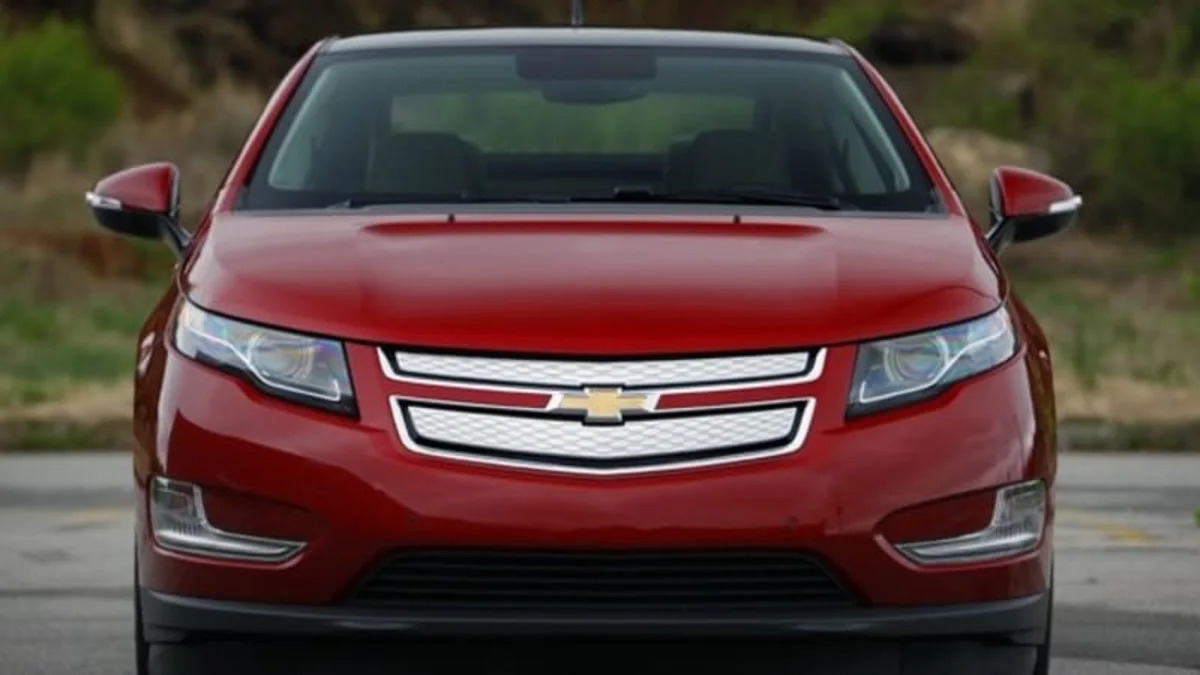De Lorenzo is a name well-known in auto circles. When I was a rookie writer in the early 1970s, Anthony De Lorenzo was GM's public relations vice president. He apparently believed his responsibilities to be wining, dining and schmoozing a handful of top reporters while ignoring the rest of us and trying to make sure that none of us found out whatever we were trying to find.
His son, Tony, Jr. was a talented sports car racer who, along with business and driving partner (and Chevrolet engineer) Jerry Thompson, won a lot of races and championships in high-powered Corvettes in the 1960s and '70s. His nephew, Matt, is a highly respected auto journalist who worked his way up from small trade magazines to Detroit editor for Road and Track to RT's editor-in-chief, where he is doing a terrific job.
Then there is Peter De Lorenzo, Tony Sr.'s other son. Not only did he choose the opposite side (journalist vs. PR) of his father's former business, but for many years has channeled his energies into one of the most successful automotive blogs, Autoextremist, where more often than not he has been a royal pain in the ass to his father's former employer. I recently found his thoughts on the Chevy Volt most interesting, as you can read after the jump.
What is Autoextremist? The site self-describes this way:
After a 22-year career in automotive advertising and marketing, Peter M. De Lorenzo founded Autoextremist.com on June 1, 1999 as an Internet magazine devoted to news, commentary and analysis of the auto industry. Since then, the site has become a weekly 'must read' for leading professionals within and outside the auto industry, and De Lorenzo is considered to be one of the most influential voices commenting on the business today.
 And he has a new book: Witch Hunt. Essays on the U.S. Auto Industry and the Blithering Idiots Who almost Killed It, a collection of his best essays on the industry's near-collapse and the bankruptcies, bailouts and resurgences of the largest and smallest of its three major players. Some will read "blithering idiots" as incompetent auto execs making dumb decisions and subpar products. Others (especially those with industry experience) will think of ignorant, self-serving politicians and regulators piling on excessive, often unreasonable and always expensive regulations for four decades and counting. Still others might think of auto-ignorant (almost all) media who reliably parrot, and rarely question, the lies and distortions corrupt, agenda-driven politicians and bureaucrats tell them.
And he has a new book: Witch Hunt. Essays on the U.S. Auto Industry and the Blithering Idiots Who almost Killed It, a collection of his best essays on the industry's near-collapse and the bankruptcies, bailouts and resurgences of the largest and smallest of its three major players. Some will read "blithering idiots" as incompetent auto execs making dumb decisions and subpar products. Others (especially those with industry experience) will think of ignorant, self-serving politicians and regulators piling on excessive, often unreasonable and always expensive regulations for four decades and counting. Still others might think of auto-ignorant (almost all) media who reliably parrot, and rarely question, the lies and distortions corrupt, agenda-driven politicians and bureaucrats tell them.
I haven't found time yet to read much of this book, but based on what I have read, I think he means all three. "From the conniving corporate sycophants and mindless bureaucratic weasels to the legions of self-aggrandizing politicians (who treated the looming disaster as their personal playground, while putting their stunning, maliciously-driven biases and incompetence on display for the whole country to see), it is a saga filled with outrage and flat-out stupidity as well as wonder and blatant disbelieve," he writes on the book jacket:
A sampling of chapter titles:
- "The Highly Compensated Bunglers from Cerberus Wreak Havoc on Chrysler"
- "Politicians? We Don't Need No Stinkin' Politicians"
- "For Once, the Short-Term Thinking Isn't Coming from Detroit"
- "Washington To Detroit: Drop Dead"
- "The UAW's True Colors Exposed Again for All To See"
- "Still Clueless after All These Years"
- "High-Voltage Hysteria"
It's about GM's Chevy Volt, which De Lorenzo praises as a "dazzling new machine," a "technological tour de force" and a "glittering reaffirmation that there is such a thing as American ingenuity, that we haven't completely devolved into a parasitic consumer society that can't build anything of consequence anymore, and that we can and will fight our way out of this morass of mediocrity that has plagued this industry – and this country, I might add – for far too long."
Actually, the chapter is not so much about the car itself as misperceptions of it, irrational reactions to it and what GM marketers should do to overcome the negative noise around it. For starters, he offers the positions of both political poles:
De Lorenzo believes that most consumers think of the Volt as a 40-mile EV, which "doesn't sound like much." While hammering its 40-mile electric range, he writes, "GM has failed to make a big-enough deal about the fact that the Volt is an extended range electric vehicle, and that the onboard engine will allow you to maintain enough of a battery charge to go a very long way. It's easy to see why marketing the Volt will be such a monumental challenge."It's important to remember that both sides of the political spectrum have clear-cut agendas when talking about the Volt. On the conservative Right, it's the anti-bailout, anti-"subsidized" GM (and Detroit), and anti-anything Obama fervor that encapsulates the frenzy. To this faction, the Volt is nothing short of e-v-i-l and represents everything wrong and bad about the current administration and the direction of the country itself.
While on the Left, we have that mind-numbing 'we know what's best for you and you will like it" smugness that envisions the sheer joy that will result after American consumers are forced to embrace electrification overnight, even though for more than 85 percent of the country it makes zero sense. And yet this group will be delirious over the fact that after an entire nation is brought to its knees by woefully misguided policies based upon theoretical 'best case' scenarios rather than functional, real-world realities, a Shiny, Happy Green Nirvana will result overnight and it will be good.
He concludes that "the Chevrolet Volt – at least for the time being – will be the ultimate niche vehicle of this young century. It will have limited appeal to a limited number of consumers in limited parts of the country, and it will work out just fine if GM marketers remember that, even though the natural tendency will be to shout from the rooftops that the Volt is nothing short of the reinvention of the automobile."
I disagree with him on limited appeal in limited areas. As a good-looking, good-handling, four-passenger hatchback that runs on grid power for the first 25-50 miles then morphs into a fairly fuel efficient gas-powered compact that goes as far as you want it to – why would it not appeal to almost anyone who can afford one? But then I disagree with Peter often... and agree with him nearly as often.
Two things are certain: he makes his points passionately and pulls no punches. I'll have to find time to read the rest of this book very soon. It should be fun!
Award-winning automotive writer Gary Witzenburg has been writing about automobiles, auto people and the auto industry for 21 years. A former auto engineer, race driver and advanced technology vehicle development manager, his work has appeared in a wide variety of national magazines including The Robb Report, Playboy, Popular Mechanics, Car and Driver, Road & Track, Motor Trend, Autoweek and Automobile Quarterly and has authored eight automotive books. He is currently contributing regularly to Kelley Blue Book (www.kbb.com), AutoMedia.com, Ward's Auto World and Motor Trend's Truck Trend and is a North American Car and Truck of the Year juror.


Sign in to post
Please sign in to leave a comment.
Continue